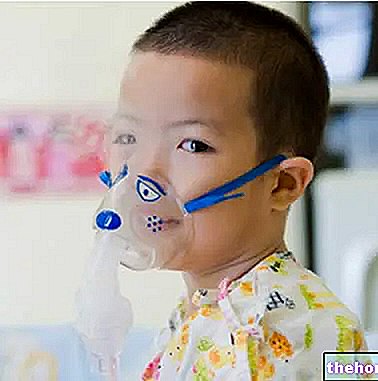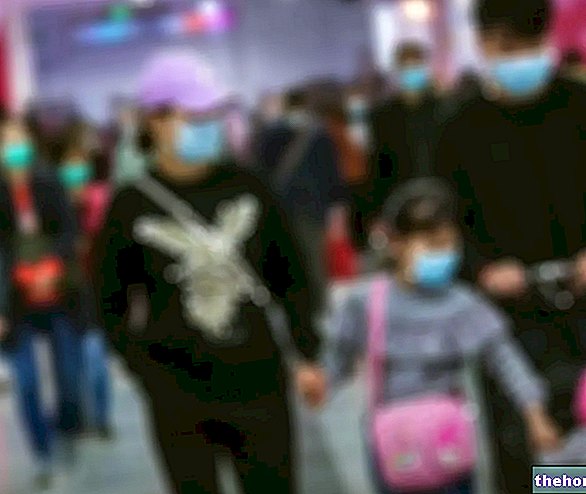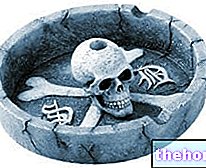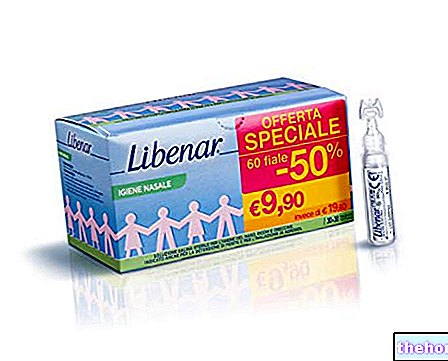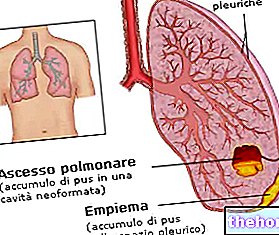Generality
COPD (Chronic Obstructive Pulmonary Disease) is a disease that affects the bronchi and lungs, causing chronic cough and phlegm and interfering with normal respiratory function.
Unfortunately COPD cannot be cured. However, doctor and patient can work together to stop its progression and improve symptoms.
Role of the Patient
The patient's role in the treatment of COPD is very important, since some behavioral changes positively affect the course of the disease.
The most important actions every COPD patient should take include:
- abolish smoking;
- undergo periodic check-ups (two or more times a year);
- regularly take the medications prescribed by the doctor, noting your name and frequency of use (bring these data with you at each check-up visit);
- if your physical condition allows it, keep fit by following a healthy diet and practicing regular sports activities;
- if the pathology does not allow you to practice alone, consult a pulmonologist to plan a "possible respiratory rehabilitation;
- ask your doctor for advice before taking medicines;
- undergo flu vaccination;
- learn exercises that help improve breathing;
- avoid dusty environments, change the air of the environment in which you live frequently, especially in the presence of bad smells;
- See your doctor right away or call emergency health services if your breathing gets significantly worse.
DIET:
- if you are overweight it is very important to lose weight by trying to bring your weight back to normal. Obesity makes it difficult for you to move, making your condition worse.
- Avoid big binges, eat slowly and in a relaxed atmosphere.
- Keep the air in the house clean.
- Stay away from pollutants, such as cigarette smoke, which make breathing difficult.
For COPD sufferers, quitting smoking is the most important and at the same time most difficult thing to do:
- the abstention from smoking allows to slow down the progression of the disease until it stops
If the COPD patient cannot stop smoking spontaneously, he or she can ask for help from their doctor or pharmacist. In fact, today there are a series of effective solutions to abandon this bad habit once and for all.
Nicotine replacement therapy can use, for example, lozenges, chewing gums or patches to be applied to the skin. Support from family members and group therapy can also be helpful in solving the problem.
Some tips for quitting smoking:
- set a date on which to stop permanently
- Inform family and friends of the decision in advance
Perfume your home and car - Eliminate the ashtrays
- Keep busy, when temptation is pressing focus on alternative activities
- You can put a chewing gum or toothpick in your mouth during seizures
- Eat more fruits and vegetables, drink lots of water
- If you give in to temptation do not be disheartened, nothing is lost
- Think about the benefits of quitting smoking: beating your boss at tennis, dancing, more energy and vigor in daily activities, cleaner breath
Medicines
Medicines prescribed by the doctor can be taken by inhalation or orally (tablets or syrups).
When using an inhaler remember to shake the can before use.
However, the package insert will suggest the best procedure for using it:
keep the torso erect and exhale deeply. Bring the inhaler into your mouth or in front of it, inhale and press the can at the same time. At this point hold your breath for about ten seconds, at the end of which you can exhale deeply. Repeat the operation if the therapy involves a second inhalation. The use of the spacer is recommended.
PHARMACOLOGICAL TREATMENT
The drug therapy for COPD is based on the use of the following classes of drugs:
- BRONCHODILATORS: very useful in the acute phase, that is, when an important dyspnea (breathing difficulty) arises. In case of mild COPD they are used only when needed and represent the only necessary pharmacological treatment. There are long-acting bronchodilators (salmeterol, formeterol) and ultra-long-acting (indacaterol) for daily use in moderate and The most used bronchodilators belong to the category of beta 2-agonists, less used are methylxanthines (theophylline) and anticholinergics (or antimuscarinics).
- ANTIBIOTICS: used to prevent and treat bacterial infections; they are often necessary in case of worsening of cough and of the amount of sputum (phlegm).
- CORTISONICS: taken exclusively under medical supervision (they can cause some important side effects, especially if taken orally) they are associated with bronchodilators in the most severe cases of COPD.
- FLU VACCINE: particularly useful in avoiding possible aggravation of the condition
For further information: Drugs for the treatment of COPD
Among the non-pharmacological treatments needed in the advanced stages of COPD we mention oxygen therapy and mechanical ventilation.
More articles on "COPD: Care and Treatment"
- Respiratory rehabilitation
- COPD Chronic obstructive pulmonary disease
- COPD incidence and prevention
- Am I at risk of COPD?
- Indacaterol and COPD
- COPD - Medicines to treat COPD

